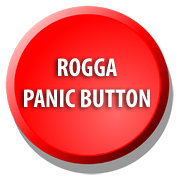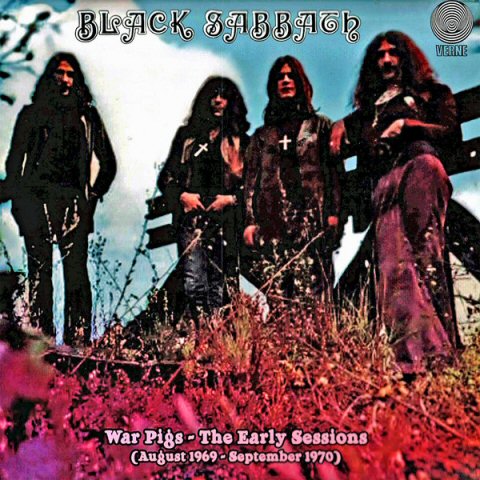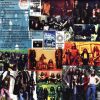Description
A strictly limited album featuring some of the earliest recordings done by Black Sabbath. Side A features a live recording done by legendary radio DJ John Peel. Although John Peel wasn’t particularly known as a major supporter of Black Sabbath, the DJ gave early radio exposure to the metal pioneers and indeed later claimed he tried to sign the band to the Dandelion label after seeing them and Medicine Head at a gig in Lafayette Club in Wolverhampton. This appears to have taken place on September 4, 1969. Peel first came across Ozzy Osbourne (lead vocals), Tony Iommi (guitar), Geezer Butler (bass guitar) and Bill Ward (drums) when the Birmingham four-piece were still using the name Earth and he was working as guest DJ when they supported Van Der Graaf Generator at the Bay Hotel in Whitburn, near Sunderland, in March 1969. According to venue manager Geoff Doherty, the band “gave no real indication of how big they were eventually to become.” By September, however, it was a different story. Now writing their own darker material and employing a heavier sound, Sabbath were managed by Peel acquaintance Jim Simpson, who arranged a special gig at the Lafayette Club in Wolverhampton to showcase the band for the DJ, although they eventually signed for Vertigo Records the following month. In November, though, a BBC session for Peel was recorded and broadcast on Top Gear. The following year, on Friday 13 February, Sabbath’s breakthrough first LP was released. Geezer Butler was later to recall that the band heard of the record’s arrival in the UK album charts when listening to Top Gear on the way to a gig. Peel had appeared with the band at Mothers club in Birmingham a week before the album hit the shops and subsequently introduced them (with Medicine Head) on his Sunday concert show broadcast on the 26 April 1970. (and repeated the following Wednesday). The recording date and venue are unknown, but many of the concert programmes of this era were recorded at the Paris Theatre in London and many Black Sabbath fans says that this could be a recording from L’Olympia Bruno Coquatrix in Paris, France on the 20th of April during their Paranoid tour. Some Black Sabbath and Ozzy message boards suggests that the same four tracks were put out officially on re-issues of Ozzy Osbournes The Ozzman Cometh compilation, listed as demos, with all audience sound and Peel links removed. The highlight of this recording is the track War Pigs that at this early stage were called Walpurgis. Some accused the band for being lightweights and phoneys, but history has proven that Sabbath was often censored and toned down by their record labels. Perhaps they would have been more offensive and sickening if they were let off their leash by record companies and censors. Recordings from the 1969 and 1970 sessions prove that Sabbath’s original lyrics were often more stark, cruel and satanic than anything they later released for a major label. For instance, this Walpurgis version has far sinister lyrics than the final product with Ozzy originally singing about churches in ruin and dead rats eating people’s innards. The original chorus to the song as performed here goes:
Carry banners which denounce the lord
See me rocking in my grave
See them anoint my head with dead rat’s blood
See them stick the stake through me
Black Sabbath would ofcourse become the godfathers of heavy metal and singer Ozzy Osbourne has always been quick to pay tribute to Peel’s support in the band’s early career after the DJ died in 2004: He was a pioneer in his own right. If it wasn’t for John Peel, Black Sabbath would never have been played on the radio. He was a good guy. Out next are four tracks recorded for the Beat Club show in Bremen. After that comes two of the earliest known Black Sabbath recordings. Up until 2003, very few people outside of the band and their inner circle even knew that there was unreleased material from their early days. While it’s still impossible to tell who leaked the material to the public, it’s an interesting story. The tracks, The Rebel and When I Came Down are simply incredible. The songs were all but forgotten, left sitting in a vault for three decades. The two tracks were written by Birmingham-born native Norman Haines – composer, singer, organist, pianist. Norman was always a little bit ahead of his time. His earlier recordings with the brass front-lined legendary Locomotive offered ample proof of this. Much of the music is violent, especially Den of Iniquity and Everything You See. Haines was instrumental in developing how Black Sabbath worked. He orchestrated their first arrangements and likely taught them how to commit their songs to tape in the studio. Officially, Haines relationship with the band ended long before their fame. Martin Popoff’s excellent Sabbath book states that Haines was elbowed out of the way in 1971 to make way for their new management team. When Earth/Black Sabbath finally decided to take themselves seriously, things started happening. Most people don’t know that Sabbath recorded nearly an entire album’s worth of material BEFORE releasing their self-titled album. In fact, Sabbath recorded at least eight songs in the studio before they began working on their debut allbum, two under the name Earth and the rest with the Sabbath moniker. The first person to get Sabbath in the studio was Jim Simpson. By late summer of 1969 he had convinced them to record and booked their first studio session at Trident Studios in St. Anne’s Court in Soho, London which was an 8-track facility at the time. Overseeing the session was Gus Dudgeon, who had also worked with Locomotive and would later produce albums for Elton John and David Bowie. All of these songs were recorded over four different sessions in late 1969. Four of the songs made it onto vinyl. Their first studio experience was productive. According to accounts, the band recorded everything live in one marathon session without overdubs. We do know that the first song they finished was a song called The Rebel. Haines wrote The Rebel and took part in playing organ and piano on the recording with Sabbath while Simpson produced. The Rebel is an incredible find for fans of the band. Partially because Ozzy’s voice is so familiar, yet the song is so foreign. To me, the thing that makes The Rebel a great Sabbath song is its level of excess. Nothing is held back here. The keyboards, drum bells and ethereal background vocals don’t exactly fit in with Sabbath’s gritty image but still deliver the goods. The Rebel demo track could very much be credit to Earth since Sabbath’s final gig as Earth was performed in Kilcaldy, Scotland just one day after recording of the song, but this recording is generally understood to indeed be the first ever by the legendary group. The second lost recording features When I Came Down a track recorded during their second recording session, taped sometime in October 1969. Just like the first session, Sabbath recorded a Norman Haines song with Jim Simpson. For the second session, the band stayed close to home, choosing to work at Zella Studios, 32 Trident Road in Birmingham. In one day they recorded at least two songs, possibly more. When I Come Down is described in print as …short but boasting strong vocals with a bluesy, pentatonic riff…much like the rhythm of NIB, set up in half time to the riff. If you’re a diehard Sabbath fan, The Rebel and When I Came Down will make you crack a smile. The bad news of this story is, out the two leaked studio tracks, one is incomplete. When I Came Down cuts out after just 53 seconds, which you may find heartbreaking after hearing how magical the chorus sounds. But then in 2005 the track got remixed by an anonymous fan. By doubling the first verse and tacking it onto the 53-second sample, somebody extended the song to almost two minutes long. You can clearly hear where the tape loops, it’s a clever splice job hacked together on audacity gives a good idea where the song was headed, but it’s not the entire song. The two songs are rarely discussed publicly. It has been said that the band weren’t pleased with either of these songs, but went along with the sessions so their manager would have something to shop to the record labels. Neither song represented the heavy rock direction they were already formulating OR their blues-based roots. Iommi and Osbourne have acknowledged its existence in print and they included 30-second clip of The Rebel on the Black Sabbath Story Volume 1 dvd release. Nobody is willing to say much about the record, either from the official Sabbath camp or dedicated super-fans. Perhaps, like us, they don’t know the whole story. These two tracks are now a big piece of music history that documents the first studio session of the four original members of Black Sabbath: Tony Iommi, Geezer Butler, Bill Ward and Ozzy Osbourne. This album then ends with a live version of an Elmore James cover called Early One Morning. This particular version of the song was recorded live at Rugmans Youth Club in Dumbfries, Scotland on November 16, 1969. This is said to be a recording by Earth and its also said to he a recording done by Mythology. Mythology was a band that Iommi joined in January 1967 and drummer Bill Ward joined a month later. Mythology played blues standards and worked on extended improvised rock jams, some of which stretched into twelve-minute territory. After playing gigs for two months and some touring, the band hit some serious bumps in the road. On May 27, 1968 some members of the band were arrested after a show in Carlisle. The poorly documented (and various) versions of the story include a tale of police searching their living quarters at their practice flat. The police allegedly found marijuana resin, and arrested and fined the band £15. This was considered a serious offense at the time; in fact, all four members of the band faced a two-year “conditional discharge,” which is, apparently, essentially the British equivalent of Probation. Iommi claims this incident was what caused the band to dissolve (at least in spirit) and what drove them apart. Mythologys last live gig is said to have taken place on the July 13th of 1968 in Siloth and Earth made their last show in August of 1969 so if the date, 16th of November 1969, for this live version of Early One Morning is correct then its an early Black Sabbath live recording. However it can be that the date is incorrect and that its actually an Earth or Mythology recording.
Track listing:
1. Black Sabbath-John Peel In Concert April 1970
2. Behind The Wall Of Sleep-John Peel In Concert April 1970
3. Walpurgis/War Pigs-John Peel In Concert April 1970
4. Fairies Wear Boots-John Peel In Concert April 1970
5. Blue Suede Shoes-Carl Perkins cover-from Beat Club TV show, Bremen May 1970
6. Black Sabbath-from Beat Club TV show, Bremen May 1970
7. Paranoid-from Beat Club TV show, Bremen September 1970
8. Iron Man-from Beat Club TV show, Bremen May 1970
9. The Rebel-recorded at Trident Studios, London in August 1969.
10. When I Came Down-recorded at Zella Studios, Birmingham in October 1969.
11. Early One Morning-live Scotland 1969



